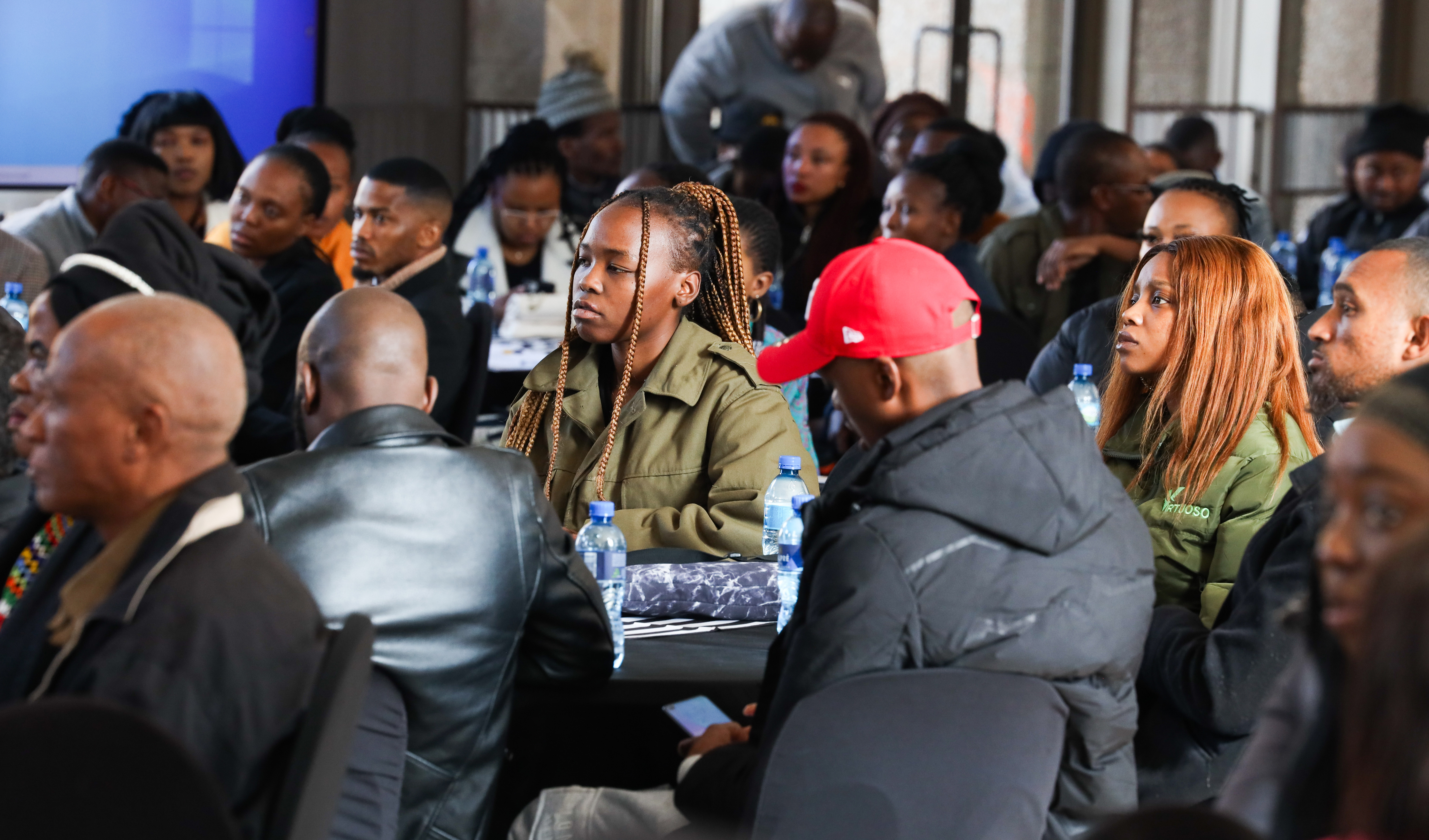The year 2024 will not only be remembered as the year the ANC lost its seat as the majority party in South Africa; it will also be remembered as the year the myth of youth apathy was dismantled. Before the 2024 elections, thousands of young content creators took to TikTok to simplify what was happening in politics.
Casting our vote is critical, but the socioeconomic issues young people face can’t wait for election cycles to be solved. Youth unemployment, for example, is the number one concern for young people. Between 2014 and 2024, the number of people between the ages of 15 and 35 looking for work for more than a year increased by 10%.
With the majority of young South Africans on TikTok, content creators are doing essential work, not only simplifying political lingo in ways that resonate with their young audience; they are also promoting political education, highlighting ways for young people to participate in politics, active citizenship and advocacy. Think about Dan Corder and Mashnotpotatoes landing a slot on national television and shining a light on young people’s lived experiences such as spatial inequality and the cost of looking for work. They’re not alone – AYoungPoetsMind, TheIvsaShow and Politically Aweh are also pushing this wave.
Real impact
But for this content to have a real impact, young people need to be able to access this information, engage with it, and consider it critically. While the theme for this year’s International Youth Day by the United Nations emphasises the crucial role of digitalisation in advancing the Sustainable Development Goals, young South Africans are sadly more than a click away from inclusive participation. While the World Bank defines access to broadband internet as a basic necessity for human and economic development, in South Africa, fewer than three in 10 households have internet access.
The Presidency recognised this need with the launch of the data-free platform SAYouth.mobi, which aggregates geolocalised job vacancies. Siyavula is another great example of a platform that provides interactive learning resources and textbooks to support learners in Maths and Science, data-free. But what is needed is infrastructure to scale this access. Zenzeleni Networks is a South African initiative that provides affordable internet services to rural areas in the Eastern Cape. By establishing community-owned and operated networks, Zenzeleni addresses the digital divide and enables local access to information and services; it shows how community-driven solutions can improve internet access and empower local communities.
Infrastructure and digital literacy
Poor infrastructure and access to broadband is part of the issue. In this sense, a major policy goal is to connect South African public schools with communications technology. In December 2021, the South African government obligated certain large internet service providers to connect 18,520 public schools with internet access. This process was meant to roll out 36 months after the operators were issued radio frequency spectrum licences. But according to the Friends of a Free Internet campaign, this obligation has not been fulfilled.
But while infrastructure will facilitate access, digital literacy is also key in ensuring that young people can benefit from these platforms. In a country where more than nine million young people are not in education, employment or training, expanding digital skills programmes is critical for empowering young people to utilise digital tools. We know that the range of opportunities available mostly depends on where one grew up and where one went to school and – with seven in 10 young people having fewer than three connections to give advice on learning and earning opportunities, it’s critical that we bridge this digital divide. The government and business must work together to fund and run training programmes to increase digital literacy, especially in areas where resources are limited
Speeding up strategic support
South Africa can enhance its digital landscape and empower youth to lead progress not only from an economic perspective. Imagine a South Africa where young people’s needs and lived experiences can contribute to policy development and implementation. The potential of digital tools to drive progress is substantial, and with strategic support, South Africa can harness this potential to build a more inclusive and dynamic future; but this is possible only if it’s a priority for the government, businesses and civic society. DM
Ekta Somera and Tshiamo Malatji are activists and community mobilisers with Youth Capital, a campaign advocating for policy change to solve youth unemployment.




